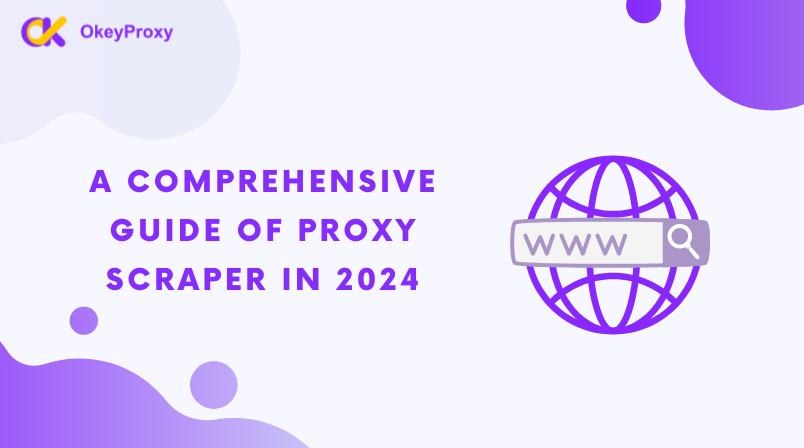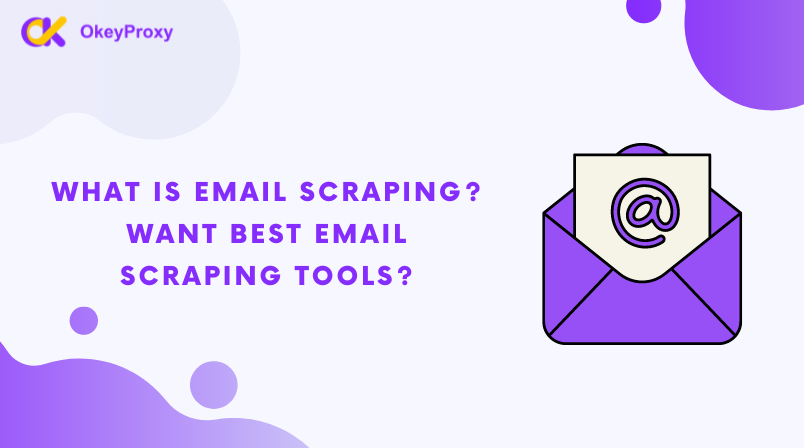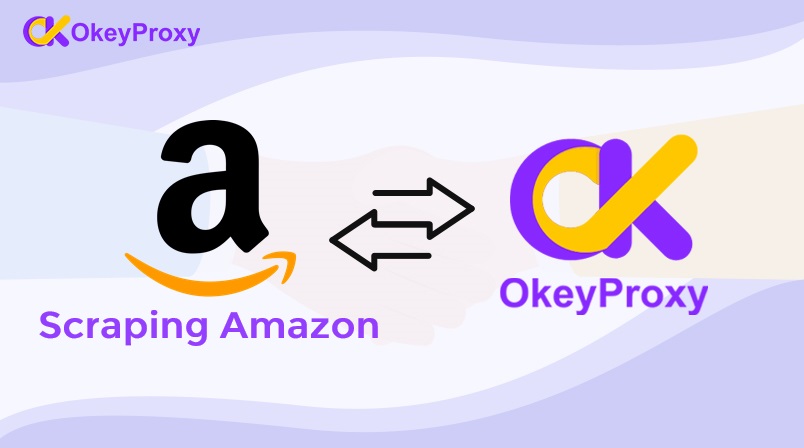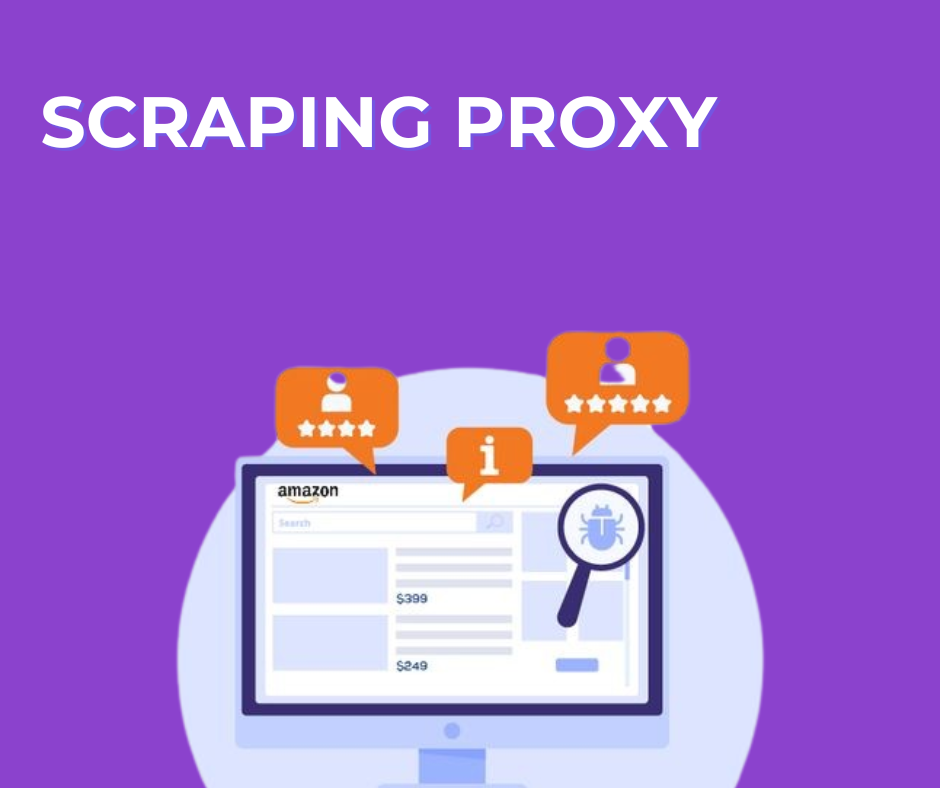Collecting data can often be a daunting task, especially when it comes to large volumes. Are you struggling to collect data from websites for your projects? Or you are tired of having your IP address exposed while web scraping. It’s time for you to consider using a proxy scraper, this tool helps you gather data without getting blocked or revealing your identity, and provides efficient and reliable data extraction.
From this blog, you’ll grasp what exactly a proxy scraper is, and why is it so crucial in the modern digital age. We will discuss the basic knowledge of proxy scraping, how it can be used in various cases, such as bypassing geographical restrictions and automated data collection, and grasp full knowledge about the use cases of proxy scraper. Lastly, we will address concerns about the legality and safety of using a proxy scraper.
Now, read on to know everything you need to know about it and start enjoying a safer and more efficient web scraping experience.
The Basic Concept Of A Proxy Scraper
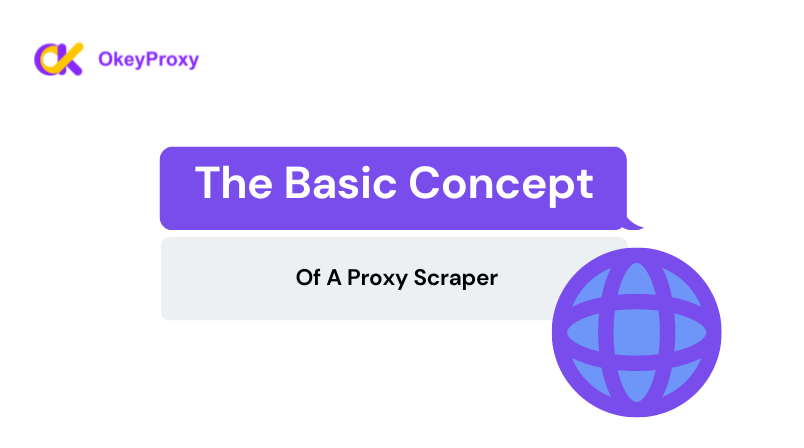
A proxy scraper is a software tool designed to extract, or ‘scrape’, data from websites while using proxies to mask the user’s real IP address. This tool is particularly useful when handling large volumes of data or dealing with websites that have strict anti-scraping measures in place. This helps users get around website restrictions and stay anonymous while scraping data.
The Mechanics of a Proxy Scraper
A proxy scraper sends requests to a website as if it were a user browsing the site. However, instead of simply viewing the data, it collects and organizes it for later use. The use of proxies is a key part of this process. By routing requests through different IP addresses, the scraper can avoid detection and potential IP bans that could interrupt the data collection process.
Proxies In Web Scraping
Several types of proxies can be used, including residential, data center, and mobile proxies. Each has its strengths and weaknesses, and the choice depends on the specific needs of the scraping project.
Understanding the different types of proxies available is crucial to maximize the effectiveness of your proxy scraper. Here are a few common types:
1. Residential Proxies: These are IP addresses provided by Internet Service Providers (ISPs) to homeowners. They are highly reliable and hard to detect, making them ideal for web scraping. It’s worth trying a 1GB free trial of residential proxies from OkeyProxy, the top 5 Socks5 proxies provider.
2. Data Center Proxies: These proxies are not affiliated with ISPs and are instead hosted on a cloud server. While they are faster and more affordable, they are also easier to detect.
3. Mobile Proxies: These are the IP addresses of real mobile devices. They are extremely difficult to detect and block, making them highly effective for web scraping.
Proxy Scraping in Different Industries
Proxy scraping is used in a wide variety of industries. For example, in e-commerce, businesses use proxy scrapers to gather pricing data from competitors. Companies use proxy scrapers to collect financial data for analysis in the finance industry. In the travel industry, businesses use proxy scrapers to gather data on flight prices, hotel rates, and more.
Advanced Techniques and Strategies
As you become more experienced with proxy scraping, you can start to implement more advanced techniques and strategies. For example, you can use machine learning algorithms to improve the efficiency of your scraper. You can also use advanced IP rotation strategies to avoid detection.
The Ethics of Web Scraping
While web scraping is a powerful tool, it’s essential to consider the ethical implications. Scraping personal data without consent can infringe on privacy rights and lead to legal consequences. Always make sure to respect the privacy of individuals and abide by the terms of service of the website you’re scraping.
Challenges in Proxy Scraping
Despite its many benefits, proxy scraping is not without its challenges. Websites are continually improving their anti-scraping measures, making it harder for proxy scrapers to extract data. Additionally, managing a large number of proxies can be complex and time-consuming.
Use Cases of A Proxy Scraper
1. Anonymity and Security: This tool provides a level of anonymity by masking the user’s IP address, making it difficult for websites to trace back the data requests. Proxy scraping allows you to bypass the censorship and firewall restrictions, thereby expanding your internet access permissions. This is the best solution for safe and anonymous access to websites.
2. Accessing Geo-Targeted Content: Have you encountered websites that are restricted or blocked in your area? A proxy scraper can bypass these restrictions by routing requests through proxies located in different parts of the world. Enhance your browsing experience with proxy scraping techniques and overcome location-based limitations.
3. Overcoming Access Restrictions: Many websites implement restrictions and access controls based on IP addresses to prevent excessive use of their resources, which usually cause obstacles to scraping activities. The proxy allows you to rotate the IP address so that you can scrape data without triggering these restrictions or bans. This is particularly important for large-scale scraping projects that require strict data from policy websites.
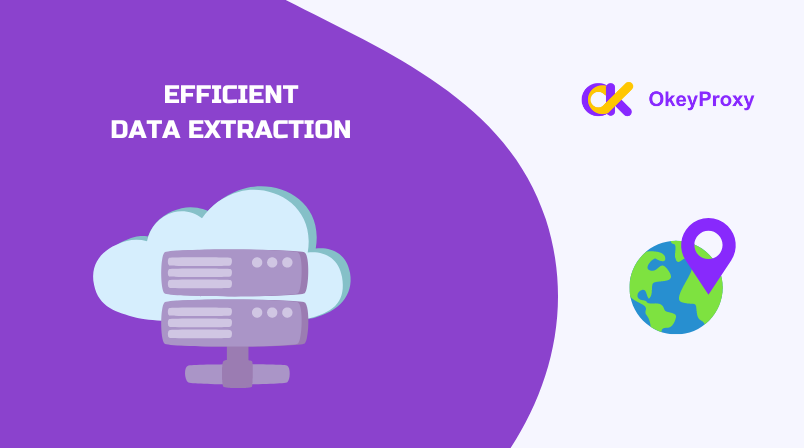
4. Efficient Data Extraction: It can automate and streamline the data extraction process, making it faster and more efficient than manual data collection. It can enhance the performance of the web scraping task by allocating loads on multiple servers, which reduces the risk of overloading of the target website, and improves the reliability of scraping operations. In addition, if the proxy server becomes unspeakable or prevented, it can be quickly switched to another to ensure continuous access to data. This helps streamline data extraction and ensures uninterrupted and reliable data collection.
5. Avoiding IP Bans: Websites often limit the number of requests from a single IP address to prevent scraping. By rotating through different proxies, a proxy scraper can avoid these limitations and continue collecting data uninterrupted.
6. SEO Monitoring and Marketing Research: SEO and marketing activities collect data from various sources using a proxy scraper. This tool helps collect relevant keywords, backlinks, competitors’ analysis, and information about the customers, social media trends, and consumer behavior and provides valuable insights on market trends.
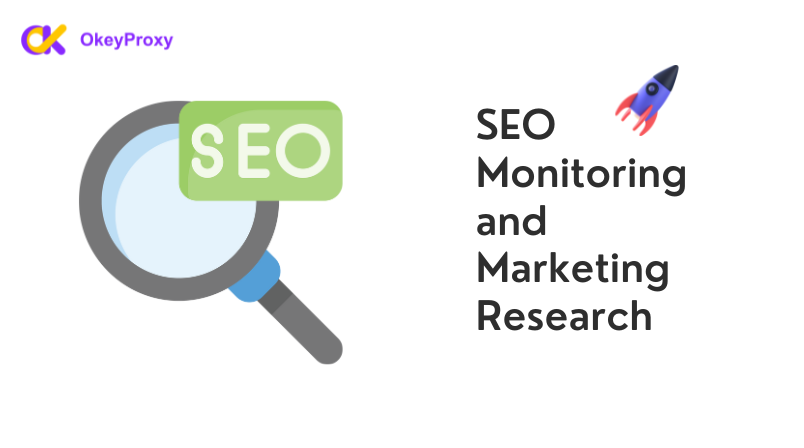
7. Network Penetration Test and Security Research: When conducting web penetration testing and safety research, the proxy scraper is a valuable tool. It helps collect data about proxy servers so that security researchers can find vulnerabilities and test the effectiveness of the firewall. The tool can also identify potential malicious traffic, such as malware, and prevent attacks.
8. Balancing Load and Reducing Risk: The proxy is critical to the load of the balanced scraper end and the target website server. By effectively managing the rate and quantity of sending requests, proxies help maintain good use of website resources and minimize the risk of attracting service interruptions.
The Future of Proxy Scraping
As technology continues to evolve, so too will the field of proxy scraping. Advances in AI and machine learning will lead to more efficient and effective scrapers. At the same time, the ongoing arms race between scrapers and anti-scraping measures will continue to shape the landscape of proxy scraping.
In conclusion, proxy scraping is a powerful tool in the era of big data. By providing the ability to collect large volumes of data quickly and efficiently, it has become an essential part of the modern digital toolkit. However, it’s important to use this tool responsibly and ethically, respecting the rights and privacy of others.


